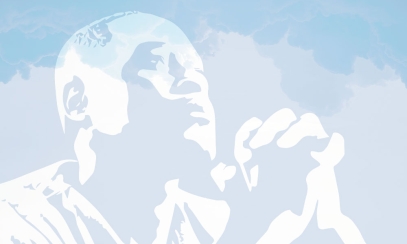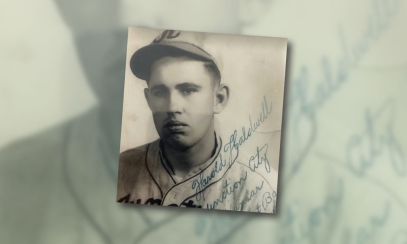
Cleanse Your Spirit to Meet Your God
For our bodies to function effectively, we have to empty them regularly of wastes and toxins consumed through eating, drinking and breathing, while at the same time retaining the nutrients that our bodies need to be healthy.
For our bodies to function effectively, we have to empty them regularly of wastes and toxins consumed through eating, drinking and breathing, while at the same time retaining the nutrients that our bodies need to be healthy.
Well, our spirits need cleansing, too, as they also consume waste and toxins fed to us by our culture, society and the media. We consume these with our eyes and ears, and even absorb them due to our unavoidable immersion in a toxic environment that often surrounds us. We have to regularly empty ourselves of those deadly elements while retaining the spiritual nutrients that sustain our souls.
Emptying our spirit
Johannes B. Metz wrote a small, 50-page book titled Poverty of Spirit (1968) in which he says “A man with grace is a man who has been emptied, has nothing, is impoverished before God (and man).” Poverty of spirit is an attitude toward life, an attitude of making ourselves less the focus and God more the focus, whom we depend upon in guiding our daily lives.
It is this state of personal unimportance, this empty state of nothingness, that allows God to enter our lives and be depended on. We are not self-sufficient beings, according to Metz. That is, we have unending doubts, needs beyond our capacities and restless, insatiable hearts. It is only in our emptiness, our naked poverty of spirit, that we can find God and realize that he is the only one who can fill the emptiness.
However, we try to run and hide from this threatening poverty or nothingness. Instead of emptying ourselves and finding God within, we pursue all the distractions of the world, which lead to anxiety, the opposite of the peace of God.
“In the final analysis man has two choices: to obediently accept his innate poverty or to become the slave of anxiety,” Metz said.
Achieving poverty of spirit
Self-emptying is self-surrendering, accepting that one does not belong to oneself. And once one has accepted that truth, he or she must not look back, but rather keep his or her eyes straight ahead, moving forward as one who is poor, is nothing, is totally dependent on God.
Now the most practical way to accomplish this intimate connection with God is in our encounters with our neighbor.
“Love of neighbor and love of God are not different — they are two sides of the same coin,” Metz shared. “A person who sees his brother or sister sees God. The only image of God is the face of our brother or sister. Our brother or sister is God’s hidden presence among us, a mediator between God and man.”
Through the depths of human encounter with our neighbor, the depths of the mystery of God open up to us. However, for this to happen, we must accept that other person without reservations, and not try to use him or her for our own selfish purposes. We must approach our neighbor in poverty, in self-abandonment, in our emptiness, availing ourselves to the God that this other person might bring to us.
Love and human encounter
Metz says that love makes us poor. It dominates our whole person, subverts all assurances of security. True lovers must be vulnerable and give of themselves without reservation or question. They must come in empty, prepared to be approached and filled with another’s distinctive personality, even though it might be frightening for this to happen.
The sad part is that failure to engage in this risky prospect of encounter will very likely lead to loneliness. This will only compound the anxiety we are already experiencing due to resisting the call to empty ourselves and become poor in spirit.
The great moments in our lives
In truth, it is only in death, when life slips away entirely, that we find fullness regarding poverty of spirit. Only then do we have no other choice but to abandon ourselves to God. In this definitive, final life experience, God is there in our inescapable poverty. We finally realize that he has been there all along, waiting for us in the empty nothingness that we have been avoiding desperately.
Metz states so eloquently, “All the great experiences of life — freedom, encounter, love, death — are worked out in the silent turbulence of an impoverished spirit. A gentleness comes over us humans when we confront such decisive moments. That is, we are quietly, but deeply, moved by a mature encounter; we become suddenly humble when we are overtaken by love; a certain luster plays over the visage of a dying person.”
In these intense events, the moment of truth has arrived; the ground of our existence is revealed to us. We find in these events the great mystery that is God and a glimpse of the heaven he has prepared for us.
Thomas Dorsel, Ph.D., is professor emeritus of psychology, a graduate of the University of Notre Dame, and a parishioner at St. Francis by the Sea Church on Hilton Head Island. Email him at tom@dorsel.com.



